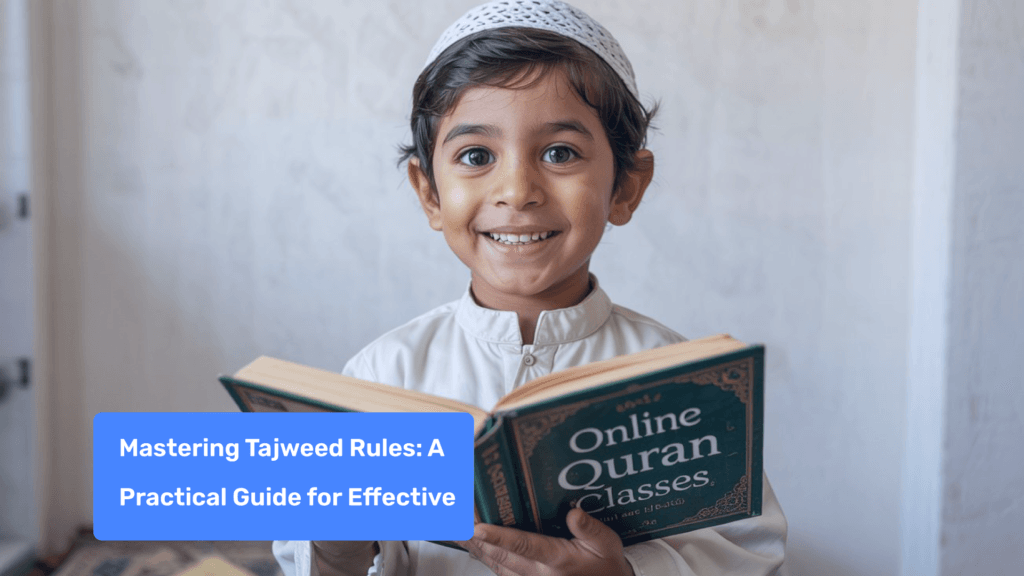The Holy Quran is the central religious text of Islam, revealed to Prophet Muhammad (PBUH) over a period of 23 years. It is a holy book that not only serves as a comprehensive guide for life but also as a source of spiritual nourishment and moral guidance for Muslims worldwide. This article will delve into the structure of the Quran, its page count, and its role in the lives of Muslims, including its impact on daily recitations, memorization, and online learning.
Understanding the Quran’s Structure and Revelation
The Quran was revealed in Arabic, and its chronological order of revelation spanned over 23 years. The first word of Allah’s revelation was “Iqra!” meaning “Read!” This command was given to Prophet Muhammad while he was meditating in a cave on Jabal Al Nour. Over time, more verses, or Ayat, were revealed, guiding Muslims through various aspects of life, such as faith, law, and ethics. The Quran consists of 114 Surahs (chapters), each of which is divided into Ayat (verses). The total number of verses in the Quran is 6236 Ayat. The length and thematic content of the Surahs vary; for instance, Surah Al-Kawthar is the shortest with only three verses, while Surah Al-Baqarah is the longest, containing 286 verses.
The Quran is not organized in the chronological order of revelation. Instead, its arrangement was determined by Prophet Muhammad under divine guidance. The chapters are classified into Meccan Surahs and Medinan Surahs, depending on whether they were revealed before or after the Prophet’s migration to Medina.
The Quran’s Organization and Division
The Quran is divided into 30 Juz’, which allows Muslims to recite the entire Quran over many pages over the course of a month, typically during Ramadan. Each Juz is further divided into two Hizb, making it easier to break the Quran down into smaller, more manageable sections for both recitation and memorization. The standard Madani Mushaf format of the quran contains 604 pages, which has become the global standard for consistency in quran reading and memorization.
Page Count Variations and Editions
The number of pages in the Quran can vary depending on the font size, formatting, and inclusion of commentary or translation. For example, the Madani Mushaf, which contains 604 pages, is widely used in many Muslim communities due to its uniformity and ease of use during group recitations. Different editions of the Quran, especially those including English translations, may range from 400 pages to 600 pages, depending on how the text is laid out and whether additional annotations or footnotes are included.
For those who aim to memorize the words of the Quran, the 604-page division provides a structured approach, making it easier to memorize one page or half a page at a time. This format also helps students who are taking online Quran classes or following a structured Quran study plan to set clear goals.
How Many Pages Are in the Quran?
The Quran generally contains 604 pages in its standard format. However, the number of pages can vary in different editions and printed editions based on factors like font size and layout. The 604-page format is especially useful during Ramadan, as it allows Muslims to recite one Juz (around 20 pages) each day to complete the Quran in 30 days.
Memorization and Recitation of the Quran
Quran memorization is a highly respected practice in Islam, and those who memorize the entire Quran are known as Hafiz (for men) or Hafiza (for women). The 604-page format aids in this process, as students can memorize a set number of pages each day, allowing them to finish the Quran in a structured manner. Many students follow a quran daily routine, reciting one or two pages each day. This practice not only strengthens one’s faith but also ensures that the Quran is preserved in the hearts of Muslims around the world.
Daily recitation of the Quran is an essential part of a Muslim’s spiritual life. The division into Juz’ and Hizb facilitates regular recitation, helping Muslims engage with the holy text on a daily basis. Whether it is recited during daily prayers or as part of one’s personal routine, the Quran’s structure makes it easy for Muslims to maintain a consistent recitation schedule for allah.
The Importance of Memorizing the Quran
Quran memorization is considered one of the most noble acts in Islam. Committing the Quran to memory allows Muslims to internalize its teachings and carry its profound wisdom in their hearts. The Quran is a comprehensive guide to life, providing guidance on both personal and social matters. Memorizing the Quran enables Muslims to apply its teachings in every aspect of their daily lives.
In addition, the practice of memorization ensures that the Quran is preserved for future generations. By learning the Quran by heart, Muslims worldwide can pass down the sacred text even in places where printed copies of the Quran may not be readily available.
Tips for Reading the Quran
Quran reading can be a spiritual and transformative experience, but it requires consistency and dedication. If a person reads one page per day, it will take approximately 604 days to complete the entire Quran. By reading two pages a day, the time required is reduced by half. For those who aim to complete the Quran within a year, reading how many pages? one and a half pages daily is sufficient.
Breaking down the Quran into smaller portions, such as reading one Juz per day, is a common practice during holy month of Ramadan. Many online Quran classes also incorporate this division to create a comprehensive approach to Quran study.
Online Quran Classes and Learning
With the advent of modern technology, online Quran classes have become increasingly popular. These classes cater to both Muslims and non-Muslims who wish to learn about the Quran and its teachings. Many classes follow the division into Juz’ and Hizb to structure their curriculum, helping students gradually complete the Quran over a set period.
For those who are unable to attend traditional Islamic schools, Quran online programs offer an accessible and flexible option to learn the Quran, including its recitation, memorization, and understanding. Students can take courses in Arabic language, Tajweed (the rules of Quranic recitation), and even Islamic studies to enhance their comprehension of the Quran’s message.
The Quran’s Content and Message
The Quran consists of 114 Surahs, each with its own unique thematic content. These Surahs are divided into Ayat, with the shortest Surah, Al-Kawthar, containing only three verses, while the longest, Al-Baqarah, contains 286. Each Surah is classified as either Meccan or Medinan, depending on whether it was revealed before or after the Prophet’s migration to Medina.
The Quran is a universal message, intended for all of humanity, regardless of race, culture, or religion. Its teachings encompass a wide range of topics, from moral guidance and social justice to faith and worship. The Quran addresses various aspects of human existence, offering a roadmap for those seeking a life of righteousness and devotion to Allah.
Conclusion
The Quran is more than just a holy book; it is a comprehensive guide to life that offers spiritual nourishment, moral guidance, and a connection to the divine. Whether through recitation, memorization, or study, Muslims engage with the Quran in various ways to strengthen their faith and deepen their understanding of its teachings.
Understanding the Quran’s structure, including its page count, division into Juz’ and Hizb, and the varying length of its Surahs, can help Muslims develop a consistent approach to recitation and memorization how many verses. Whether reading the Madani Mushaf with its 604 pages or exploring translations in different languages, the Quran remains a timeless source of wisdom and guidance for Muslims around the world. Online Quran classes and Quran online programs have further broadened access to this sacred text, making it possible for more people to learn about the Quran’s message and its relevance to modern life.
Ultimately, engaging with the Quran, whether through daily recitation or memorization, allows Muslims to foster a deeper connection with Allah, enrich their spiritual journey, and live in accordance with the divine teachings that have guided humanity for over 1,400 years.













